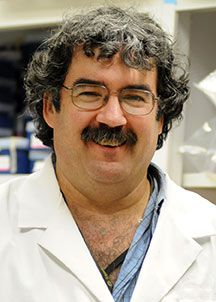
WASHINGTON (Sept. 4, 2013) – Over the next two years, John Hawdon, Ph.D., a researcher at the George Washington University (GW) School of Medicine and Health Sciences (SMHS), will be working to develop techniques to manipulate hookworm DNA.
Hookworm, a parasitic worm that wreaks havoc in people living in regions with poor sanitary conditions, is especially destructive in children and pregnant women. With almost a billion people infected with hookworm worldwide, there is an immediate need to develop drugs to help control this parasite.
“Genetically manipulating the parasite will allow us to do things like determine gene function and find what genes are important for this parasite to survive to ultimately use them as drug targets,” said Hawdon, an associate professor of microbiology, immunology, and tropical medicine at GW SMHS.
This grant will also allow Hawdon and his research team to learn more about how hookworm survives inside its host. Because hookworm needs a host to live, researchers have been unable to develop basic techniques for research until recently.
“Right now we are asking questions about what happens at a molecular level during an infection. When hookworms enter a host, they only start developing if they are in a correct host. How do they know they are in a correct host? What signals tell them and how are these signals transmitted? Is this a target for intervention?” said Hawdon. “Another important question is, once they start developing, what genes are important for them to become a parasite? They start outside their host, but once they get inside the host these worms totally change their lifestyle. These are fundamental questions in parasitology that we have been looking at in this particular worm.”
If the markers Hawdon and his team insert into the genome of the hookworm are successful, they can then take genes of interest and begin eliminating and over-expressing them to see what the effects are.
The $407,233 grant is from the National Institute of Allergy and Infectious Diseases for his project titled, “Developing Tools for Genetic Manipulation of Hookworms.”


